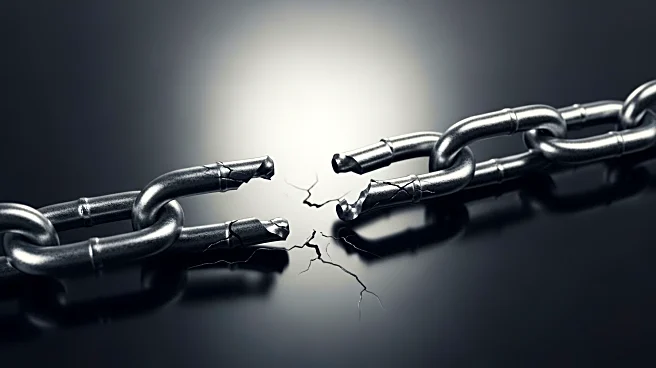What is the story about?
What's Happening?
HE Simm, a mechanical and electrical firm based in Liverpool, has gone into administration, leaving trade creditors owed nearly £15 million. The firm collapsed with minimal assets, including £55,000 in fixed assets and £530,000 in cash, alongside £3.9 million of work in progress. Administrators from Forvis Mazars have indicated that unsecured creditors, owed £18.1 million, are unlikely to receive any payout. The company's financial troubles were exacerbated by increasing commercial pressures, losses across multiple schemes, and the withdrawal of credit insurance coverage. A total of 127 employees were laid off, with claims amounting to £214,000 submitted to the Redundancy Payments Service.
Why It's Important?
The collapse of HE Simm highlights significant challenges within the construction industry, particularly for firms operating in the mechanical and electrical sectors. The inability to pay trade creditors and the loss of jobs underscore the financial vulnerabilities faced by companies amid commercial pressures and project delays. This situation may lead to increased scrutiny of financial practices and risk management strategies within the industry. The ripple effects could impact suppliers, contractors, and employees, potentially leading to tighter credit conditions and increased caution among investors and insurers.
What's Next?
Administrators are working to assess the full extent of HE Simm's financial situation and potential recoveries for creditors. Former employees, as preferential creditors, may receive partial dividends, but unsecured creditors face a bleak outlook. The industry may see increased consolidation or restructuring efforts as firms seek to mitigate similar risks. Stakeholders, including trade associations and regulatory bodies, may push for reforms to enhance financial stability and transparency in the sector.
Beyond the Headlines
The collapse of HE Simm raises questions about the sustainability of business models reliant on credit insurance and the impact of external economic pressures. It may prompt discussions on the ethical responsibilities of firms to their employees and creditors, as well as the role of government in supporting struggling industries. Long-term shifts could include a reevaluation of project management practices and increased emphasis on financial resilience.

















